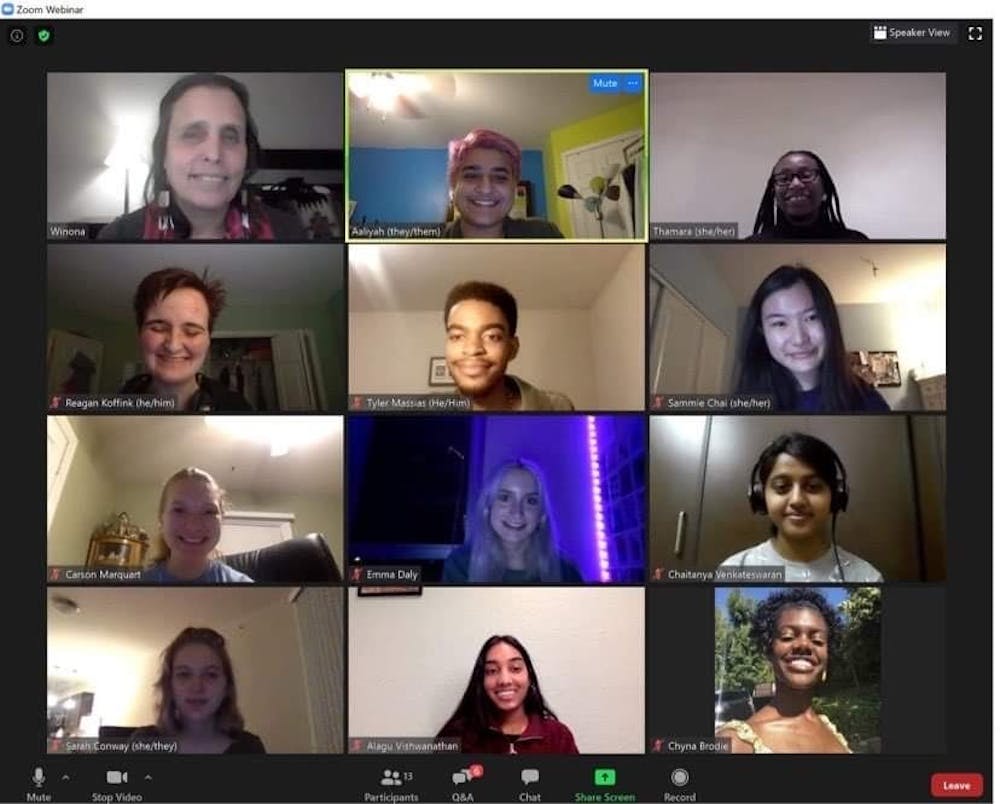At a Nov. 10 virtual event hosted by American University Student Government Women’s Initiative, environmentalist and Native American activist Winona LaDuke spoke about renewable energy, the future of the economy, sustainable food systems and biodiversity.
“My idea of when America was great is when there was tremendous agrobiodiversity; about 8000 varieties of corn, [a] thousand varieties of potatoes, 50 million buffalo, tremendous biodiversity [and] 250 different species of grass,” said LaDuke, a former vice presidential candidate for the Green Party. “That’s when America was great, and ecological restoration in this moment in time involves not only acknowledging what is lost but also working to restore some of that.”
LaDuke also touched on how biodiversity helps keep food systems reliable and prosperous. She said society always has always thought that a bigger system in scale with the economy is the best method, but as the coronavirus pandemic has exposed some of the flaws in industrial food systems, the opposite might be true.
“It turns out that ‘big’ cannot transform easily during crisis. And so you saw millions of gallons of milk being poured off, you saw all kinds of chickens and eggs being killed and pigs. What you need is systems that are resilient,” LaDuke said. “They’re studying these Indigenous potato varieties for climate change because biodiversity — we probably learned that from the Irish Potato Famine — but biodiversity is what you really need at a time of climate change. You need to figure out what plants will do good.”
She also spoke about her interest in renewable energy, specifically wind energy and solar power, and how that can help facilitate the transition into what she describes as the “next economy.”
“That’s to say this last economy didn’t do so well for Indigenous people — a lot of land [and] water poisoning, a lot of environmental justice challenges,” LaDuke said. “So I’m all ready to get to the table for the next economy and make some renewable energy so [we] have some security for my village.”
LaDuke also discussed how cannabis-based materials can be employed in the next economy in an effort to decrease the use of fossil fuels because of the quick speed that it takes to grow.
In addition, plants, including cannabis and hemp, play a role in capturing carbon dioxide from the atmosphere.
“I think it’s time to move on and move beyond fossil fuels because we need to be done with them, we just need to evolve,” LaDuke said.
On top of that, LaDuke spoke about the need for the inclusion of Indigenous people and people of color and how justice should be delivered.
“I think that there’s a lot of places where Indigenous people and people of color need to be at the table in all of the value-added aspects. And you know certainly as well as I do that the war on drugs has criminalized more people of color, you know than white people, and so dispensaries should be owned by people of color,” LaDuke said. “We’ve had such energy injustices in our territory, so I want to create the next energy economy, and I want us to get paid for it.”





